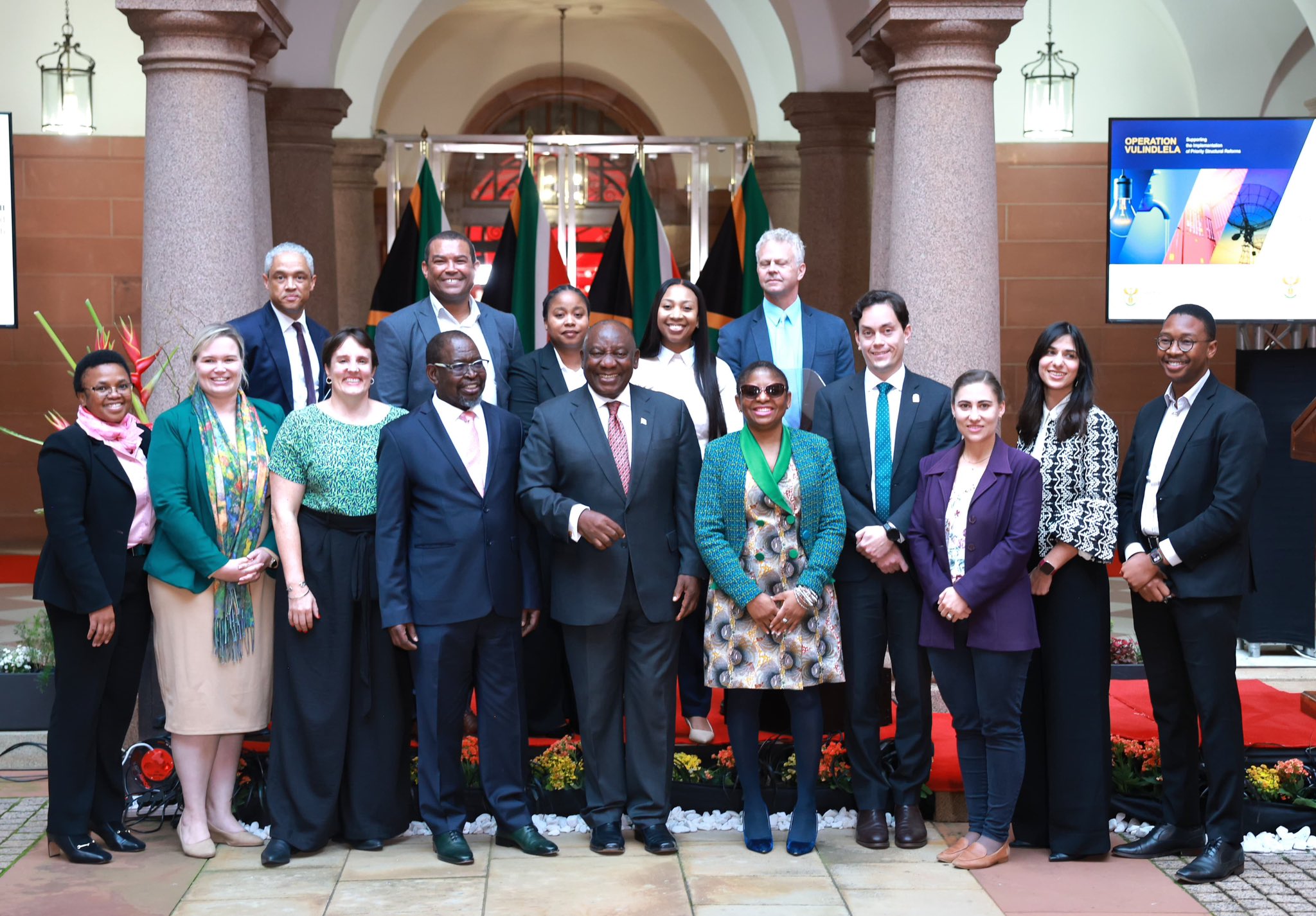Operation Vulindlela Phase II Targets Municipal Reform to Unlock Economic Growth
South Africa has 257 municipalities — including metropolitan, district, and local governments — many of which are now crippled by institutional failures.

- Country:
- South Africa
South Africa has entered a pivotal moment in its efforts to rejuvenate its economy and restore confidence in governance. The launch of the second phase of Operation Vulindlela (OV II), a collaborative initiative between the Presidency and National Treasury, marks a critical escalation in structural reform, this time with sharp focus on the chronic dysfunctions plaguing municipalities across the country.
Originally launched in October 2020, Operation Vulindlela was designed to fast-track key structural reforms in sectors such as energy, logistics, telecommunications, water, and immigration. Now, OV II sets its sights on the foundational level of governance — municipalities — whose deteriorating performance is cited as a growing constraint on national growth and investment.
Local Government Dysfunction: A National Crisis
South Africa has 257 municipalities — including metropolitan, district, and local governments — many of which are now crippled by institutional failures. According to OV II documentation, 66% of municipalities are in financial distress, with 64 officially classified as dysfunctional. This widespread decay in local government directly affects service delivery, investor confidence, and ultimately, economic recovery.
During a technical briefing preceding the launch, Saul Musker, Director of Strategy and Delivery in the Presidency, laid out the fundamental connection between local government performance and national economic prospects. He noted that even if major reforms in energy or logistics succeed, their benefits are diluted if local-level infrastructure, like electricity distribution or road maintenance, remains neglected.
A Vicious Cycle of Decay and Disinvestment
The crux of the crisis lies in a recurring pattern: aging infrastructure leads to service interruptions, which in turn reduces revenue, ultimately hindering the reinvestment required to maintain or improve services. Musker called this a “vicious cycle” that has led to the collapse of essential systems such as water supply, waste management, and electricity distribution.
To arrest this downward spiral, OV II proposes shifting to a utility model for key "trading services" — water, electricity, and waste management — within municipalities. This model aims to ringfence revenue from these services, ensuring it is reinvested directly into infrastructure rather than being absorbed into the broader municipal budget and used for unrelated expenditures such as salary costs.
Institutional and Financial Reform of Municipal Services
OV II envisions utilities that are:
-
Professionally managed with skilled staff,
-
Accountable for end-to-end service delivery,
-
Governed by clear, separate financial accounts,
-
Supported by licensing and regulatory oversight.
Importantly, municipalities will be allowed to choose their implementation model, whether through municipal-owned entities, internal business units, public-private partnerships, or concessions. The key is not the form, but adherence to financial discipline and operational accountability.
Professionalisation and the PSC Bill
Another key focus of OV II is the professionalisation of senior municipal leadership. All municipal managers and CFOs will be required to meet minimum competency criteria, with oversight extended to the Public Service Commission (PSC) under the soon-to-be-enacted PSC Bill.
Passed by the National Assembly on 18 March 2025, the PSC Bill aims to strengthen the Commission’s independence and broaden its reach to include local government. This institutional change is expected to help standardize hiring practices, improve governance, and prevent politically motivated or incompetent appointments.
Revisiting the 1998 White Paper on Local Government
Recognizing that some problems are systemic rather than incidental, the government has also launched a comprehensive review of the White Paper on Local Government. This 1998 policy document laid the groundwork for the current local governance structure. Its update, spearheaded by the Department of Cooperative Governance and Traditional Affairs (CoGTA), is now open for public comment until 30 June 2025.
The review explores:
-
The two-tier municipal system (district vs. local municipalities),
-
Powers and functions of various categories of municipalities,
-
Sustainable revenue models suited to contemporary needs.
This process aims to result in a reimagined, fit-for-purpose local government system, more aligned with today’s realities and future goals.
Reforming the Financial Framework: MFMA Amendments Ahead
A major obstacle to effective municipal governance is the Municipal Finance Management Act (MFMA). OV II intends to overhaul how conditional grants are allocated and utilized, and propose legislative amendments that ensure sound financial practices across municipalities.
Musker emphasized that reforms must be tackled collectively. “All of those reforms are interrelated… they need to be done together, again to tackle the root causes, the structural causes of local government underperformance.”
A Renewed Push for Growth and Transformation
At the formal launch of OV II at the Union Buildings, President Cyril Ramaphosa reaffirmed his administration’s commitment to sustainable growth and systemic reform. He stressed that South Africa’s recovery hinges not only on national policy but on fixing the local engines of development — its municipalities.
“Growth is the only way to achieve fiscal sustainability and social progress. That is why we will not yield in our efforts to reform this economy, to fundamentally transform it and to remove the constraints on growth,” he said.
Turning the Tide on Municipal Collapse
Operation Vulindlela Phase II represents a significant step forward in addressing the deep-seated failures of local government. By confronting both the institutional rot and structural design flaws, the reform effort holds the promise of rebuilding municipalities as reliable, service-oriented institutions.
Only through this holistic, intergovernmental push can South Africa hope to achieve its economic revival — from the ground up.










